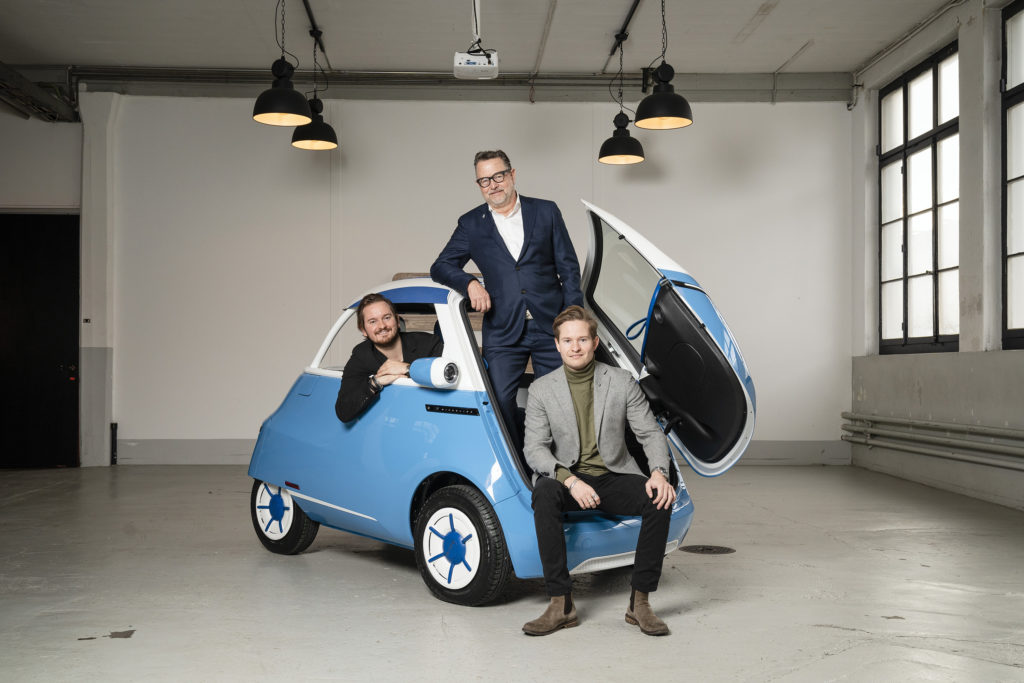When it comes to innovative means of transport, the Ouboter family already demonstrated their expertise in the field. In 1999, Wim Ouboter launched an adult scooter, the Micro Scooter, on the market. Since then, over 50 million scooters have been sold, with an electric version available since 2013.
This success did not curb the inventive spirit of Ouboter and his sons, Oliver and Merlin. They first presented the Microlino, a cross between a motorcycle and a small car, in 2016. The two-seater has a protective roof and storage space for shopping. Because it is only 2.5 meters long and has a front-opening door, three can fit into a single parking space. The Microlino is designed to be used as a second car, for commuting to work or shopping. Its range is 91 to 230 km, depending on the battery selected.
When the vehicle, with its eye-catching front door, was unveiled at the 2016 Geneva International Motor Show, it was still a prototype and smacked of a PR stunt. It has been further developed since then and is now available in a market-ready version. Production started in summer 2022, in a dedicated production facility the Swiss company Microlino AG set up in Turin for the purpose. One of the reasons for the northern Italian location is its existing network of automotive suppliers. The company employs around 100 people in development and production.
A year after the start of production, the first hundred Microlinos were on the road. In 2023, 4000 vehicles were produced, a number that is expected to increase fivefold in the years to come. The family-owned company intends to continue to support this growth with its own resources, starting with the Swiss home market. The lightweight cars will then be sold throughout Europe, an expansion facilitated by the harmonised regulation of this vehicle category across the European Union. Return on investment is expected within three to four years.

Microlino AG